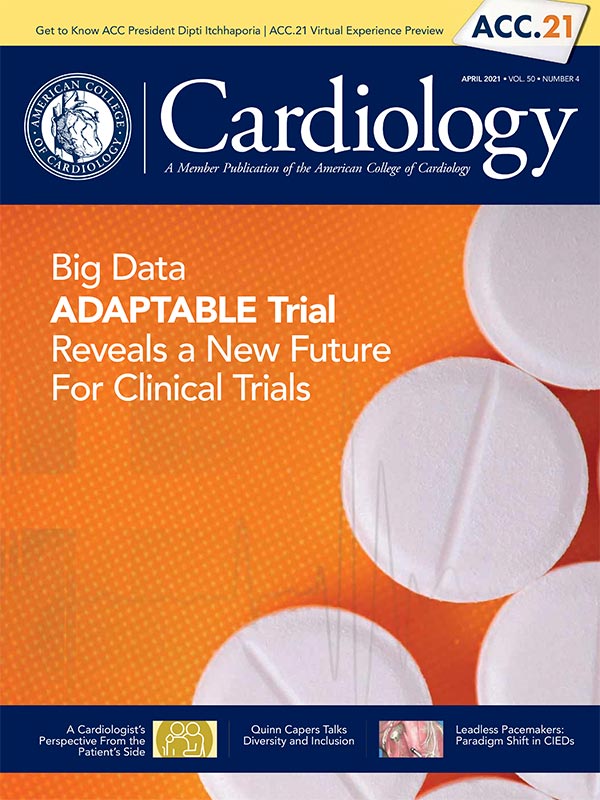Get to Know ACC President Dipti Itchhaporia, MD, FACC
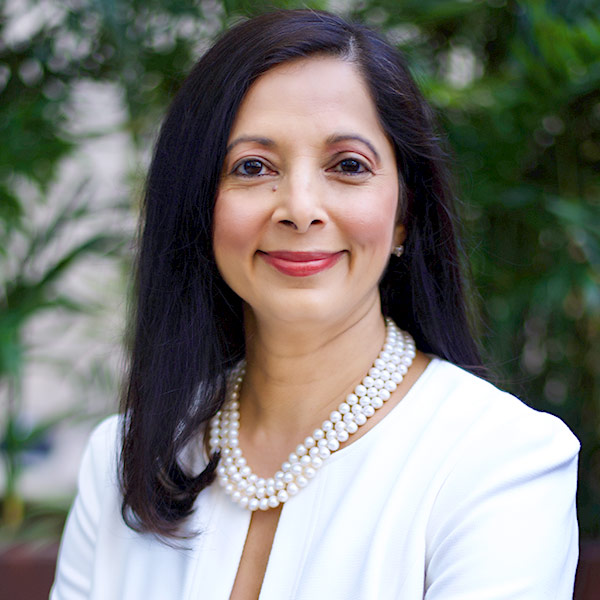
Dipti Itchhaporia, MD, FACC, officially took the helm of the ACC as its 70th President on April 1. While the official presidential transition typically occurs during the Convocation ceremony at ACC's Annual Scientific Session, this year's changing of the guard took place outside of the meeting due to the delay of ACC.21 until May.
Itchhaporia's presidency represents several historic moments in ACC's history. Not only is it the first time that the presidential gavel has been passed from one woman to another, but Itchhaporia is also the College's first South Asian, Indian American president.
Cardiology spoke with Itchhaporia about her views on some of the greatest opportunities and challenges for the College, the future of the cardiovascular profession, and the impact of the digital transformation of health care. Also be sure to visit the Convocation page during ACC.21 to hear from Itchhaporia on her challenge to ACC members new and old as we emerge out of the pandemic and look to the future.
What are the biggest opportunities for the ACC over the next year?
There is no doubt in my mind that 2021 will be a year of transition. As we emerge from the COVID-19 pandemic, we have an important opportunity and charge to come together and reconnect as a cardiovascular community, uniting around our shared Vision of a world where innovation and knowledge optimize cardiovascular care and outcomes. We have spent the last year physically separated from each other, focused on survival and healing in the midst of serving on the front lines of a global health crisis.
I see opportunity and hope on the horizon to come together as an ACC community around the globe. My hope for and my challenge to ACC members for the next year and beyond is to not lose sight of our strengths or the sense of community that has grown out of our shared vulnerabilities and our shared sense of purpose to find solutions for ourselves, our patients and our communities.
As an organization, we need to make great strides in the projects aligned with our Strategic Priorities over the next year. We must truly embrace digital transformation – as an organization through the ACC's outlined pathway and at the member level every day in working with our patients. Digital transformation will improve our patient's health and their outcomes. True digital transformation should improve our life or at least make it easier. It is one of the tangible pieces of the puzzle to positively impact clinician wellness, it disrupts and challenges old notions of care delivery, and it can help to make meaningful strides to improve health equity. The future that we've been talking about for a decade with telehealth and other digital transformation efforts is here and we must embrace it and lead it for our patients and ourselves.
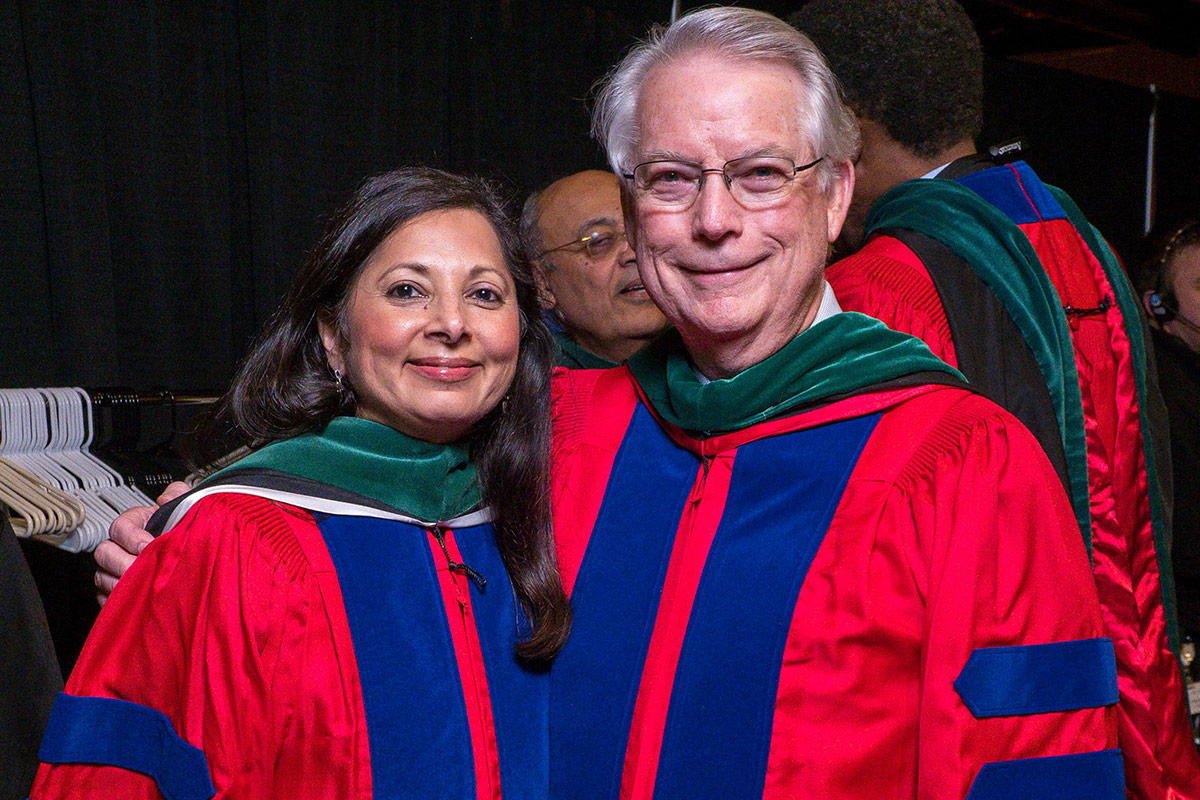
Other strategic priorities include optimizing the NCDR in order to provide maximum benefit to clinicians and health systems. To this end, the College is focused on a few primary objectives, including: 1) reducing the burden of data collection while exploring additional sources of data; 2) enhancing NCDR value to stakeholders; 3) promoting local, regional, national and international quality improvement; and 4) supporting population health management through advocacy and generalizable information. To achieve these, we must evolve and adapt – and this is an area of huge opportunity and impact in the coming years.
Additionally, we are enhancing our approach to providing clinical guidance to clinicians worldwide. Our goal is to get critical information to clinicians quicker and with increased accessibility, while maintaining the highest quality of clinical guidance. Our Guideline Optimization initiative, in partnership with the American Heart Association (AHA), is seeking to define a more efficient process for developing ACC/AHA Clinical Practice Guidelines that are trustworthy, timely and accessible. Moving toward a broader clinical guidance portfolio is the next step, and this involves re-envisioning the relationship between clinical guidance content types and the process by which it is commissioned, produced and evaluated. This is a major opportunity to positively impact day-to-day practice for all of us.
What about some of the greatest challenges for the College?
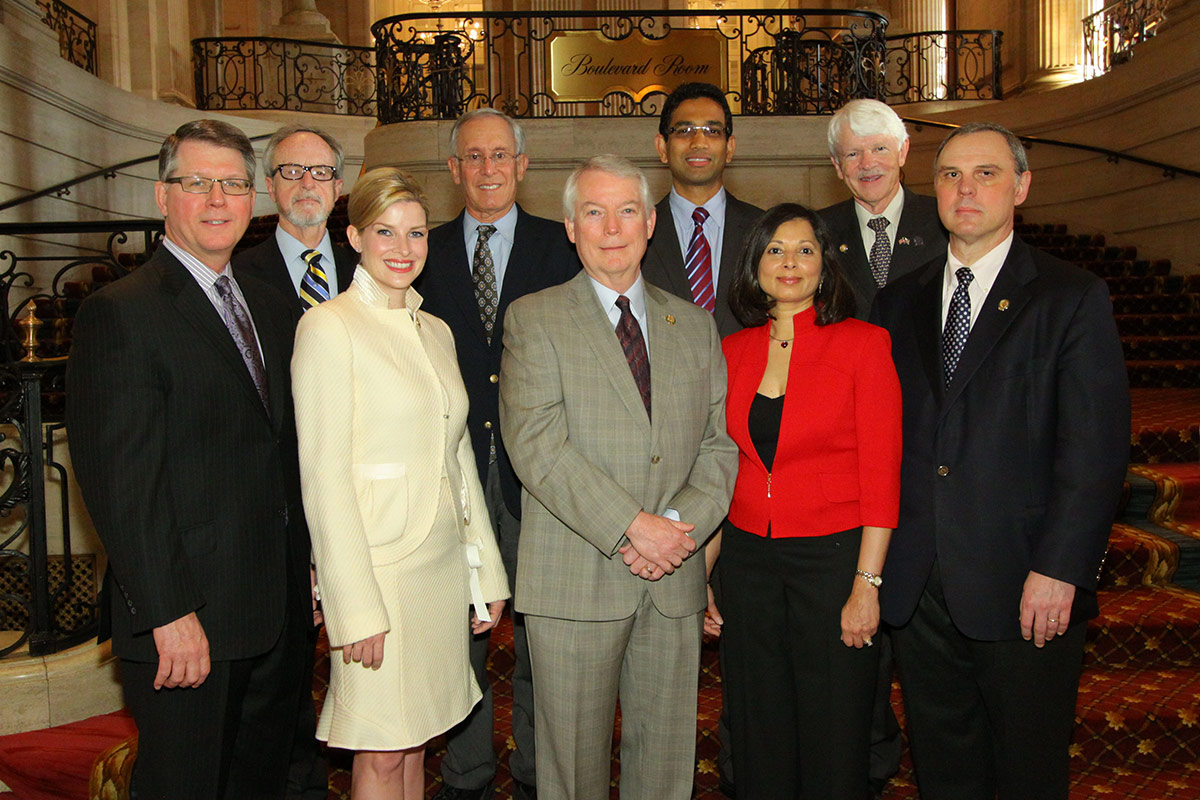
In what will ultimately be known as the post-COVID era, we need to examine how we can thrive as an organization. It will be critical for us to think about how we provide value to our members, our patients and our communities. This is a great challenge but presents incredible opportunity for all of us. The pandemic has shown that patients – just like our members – are embracing digital health. It will be a challenge for us to think through how we as an organization support cardiovascular professionals and their patients to continue using those tools. We need to ask ourselves questions such as how do we move digital health forward? What virtual care tools do we need to add to support remote care? We need to drive that innovation, partnering with tech companies big and small to provide value to our patients, and ultimately support our Mission of transforming cardiovascular care and improving heart health.
What excites you about the future of cardiovascular medicine and care?
Medicine has traditionally been very conservative – any movement is guided by evidence. But what we've seen over the last year is turning the way things used to be on its head. It is exciting to think of what true digital transformation in cardiovascular medicine and care will do in the future. It is true that it will disrupt care delivery – but it will make life better. We are starting to see that we can do things in a different way than we've done it before – maybe even a better way. And we did this overnight out of necessity during the last year where a global pandemic became the launching point for tremendous acceleration on the pace of medical innovation and technical feasibility.
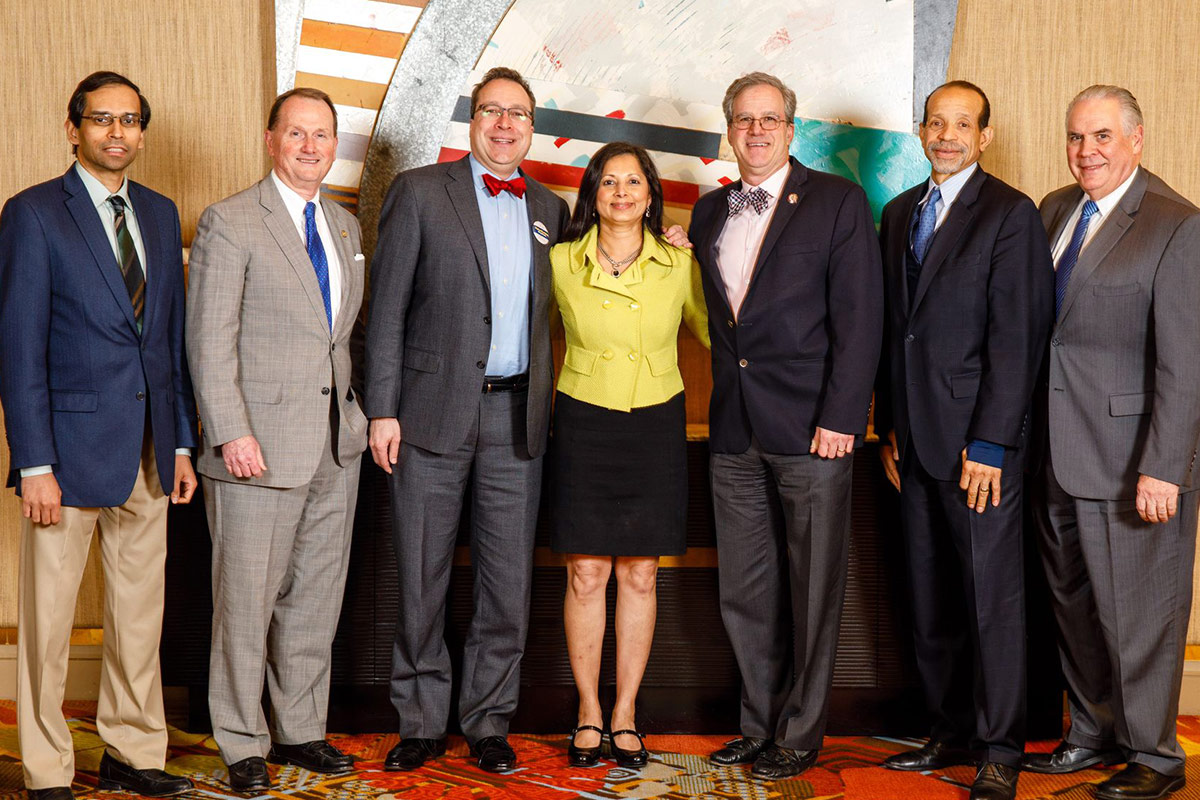
We will continue to see hospitals and health systems incorporate virtual care solutions across the care continuum from telehealth visits to virtual hospital care and home-based care. This growth appears to have staying power as both patients and physicians adopt a new virtualization mindset. It will be interesting to look back at a year of data to see what telehealth has done for our patients and to see how it has made a meaningful impact on clinician wellness.
In addition, the attention that the pandemic has brought to health inequalities offers an opportunity to address that shortcoming. While health equity has been an aspirational goal of the ACC for many years, we are finally beginning to see it actualized. With the formation of the Health Equity Task Force this past year, we are poised to create a culture of health equity in cardiovascular medicine and eliminate disparities by ensuring equitable cardiovascular care for all. If we don't help craft the solutions, who will? Tech companies and engineers are looking for our clinical expertise to help usher in meaningful digital solutions. Our patients are counting on us for these solutions. This work is desperately needed for our patients and I am excited about what is to come in this space.
Do you have a favorite ACC memory?
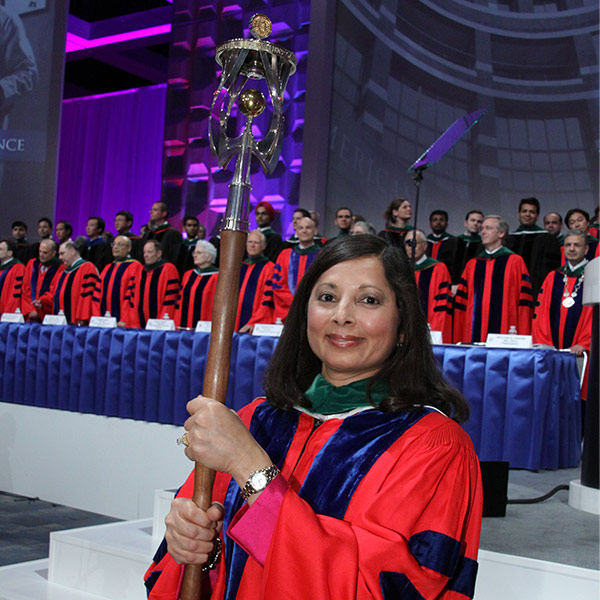
In all my years of being a part of the College, carrying the ACC mace at Convocation as the Chair of the Board of Governors (BOG) stands out as one of the memorable moments. It was during our last Annual Scientific Session in San Francisco – in my home state of California, in the city where I met my husband. It was an incredible time in my life and I remember it so fondly. Years before, when I was receiving my FACC at Convocation, I remember the music playing around me in the hallway as we lined up for the ceremony. I remember the energy and pride exuding from the members around me who were there with their families (I didn't realize I should have invited mine!) and how inspired I felt. It made me feel so proud to be a part of the College. Sitting there during the ceremony so inspired and moved, I saw the ACC Secretary/BOG Chair arrive at the podium. I wondered how did they get there? How did they get that job? Fast forward years later and who would have known I would be standing in those footsteps and creating my own path in that role. I am forever grateful for the opportunity to have served in that position.
Over the course of your path to becoming ACC president, what were your most memorable or formative milestones and mentors?
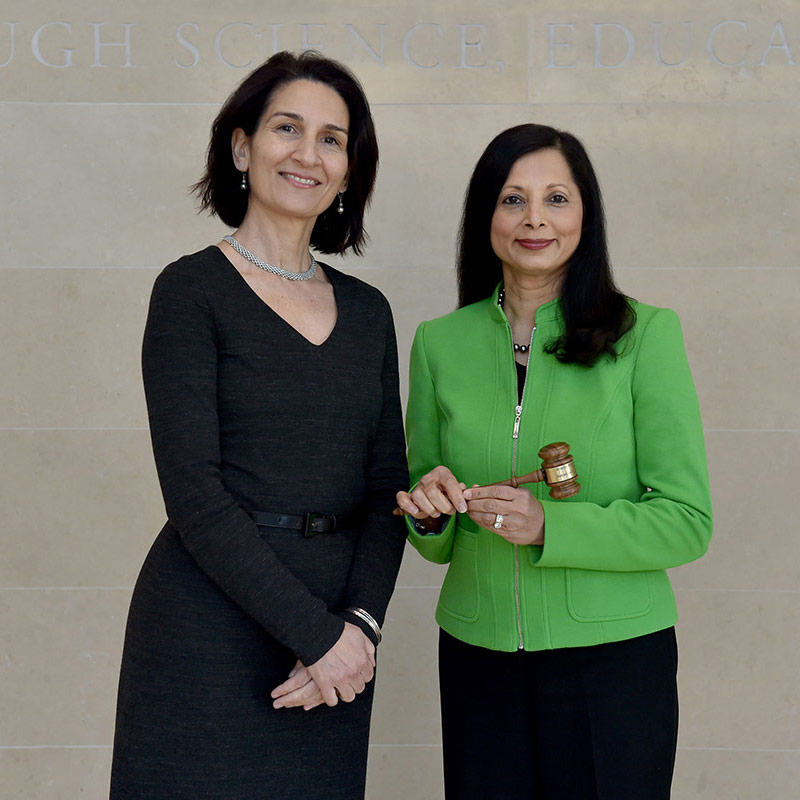
When I look back on my career, I see a long line of mentors and people who have greatly influenced my life and I am thankful to all of them for the impact they have had on me over the years. It is difficult to name everyone. During my training years, I would have to mention Manuel D. Cerqueira, MD, FACC; David L. Pearle, MD, FACC; and William J. Oetgen, MD, MBA, MACC, as being very encouraging. At my home institution, Pravin M. Shah, MD, MACC, mentored me and he helped me to launch a cardiovascular course that I have run for a decade in Newport Beach.
Thinking about my ACC path, I remember that my leadership opportunities began with my local California Chapter when I first became a councilor – a position that I worked incredibly hard in and that work ethic began to open doors for me. I had a motto that I would say yes as often as I could feasibly do so to embrace opportunities. Then, when ACC Past President John Gordon Harold, MD, MACC, called to ask if I would be interested in running for governor of the Chapter, I leaned in and said "yes!" John is among those encouraging people during my career and one of my earliest ACC mentors. Lianna S. Collinge, CAE, CEO of the California Chapter, also became a friend and trusted advisor.
Once I became involved in the BOG, I could not have asked for better colleagues to be surrounded by and learn from, particularly Thad F. Waites, MD, MACC, who was BOG Chair the year before me. He and I led as a team with cohesive communication and knowledge sharing. I have gained so much from Thad as both a personal and professional friend and mentor. I was also lucky to have had many amazing BOG chair colleagues including Michael Mansour, MD, FACC; C. Michael Valentine, MD, MACC; and Richard A. Chazal, MD, MACC. Mike Valentine has provided me much counsel, but it was Rick Chazal who guided me in the process of becoming ACC President.
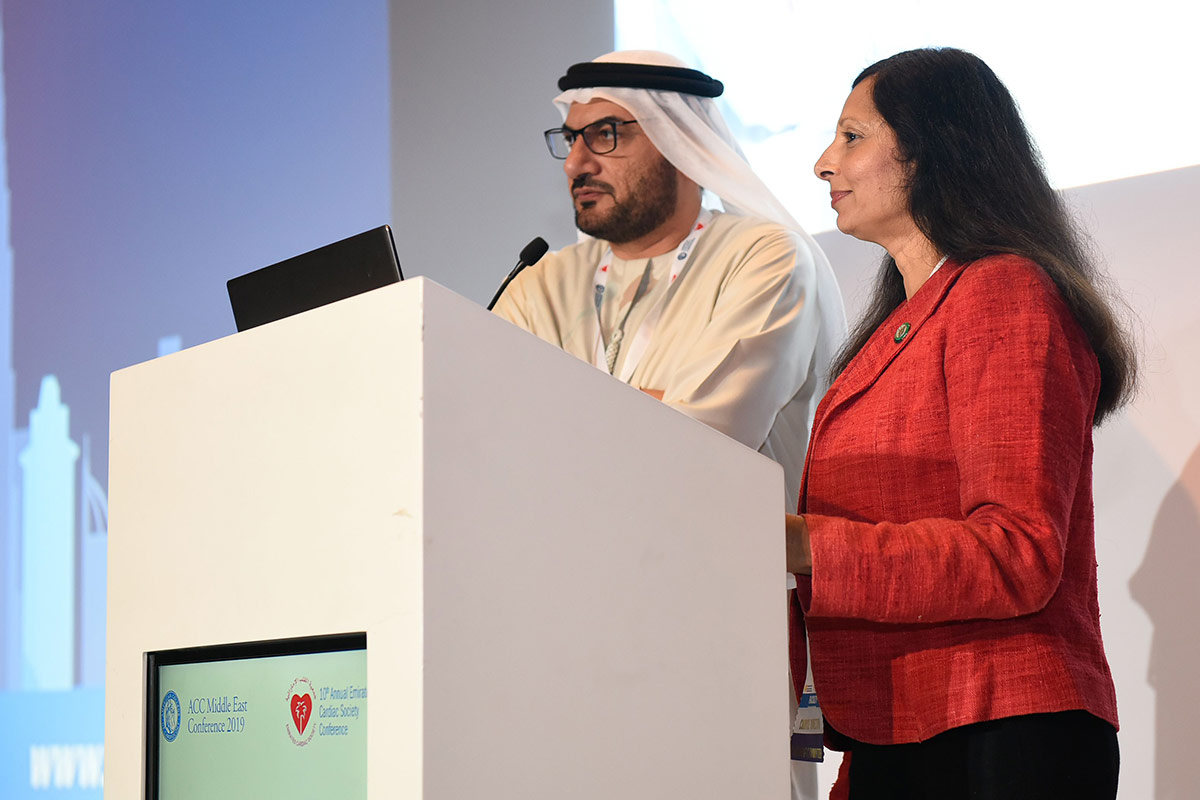
Other mentors have given me more understanding of the pillars of the College – particularly the importance of actionable knowledge and education. Rick A. Nishimura, MD, MACC, and Past President Alfred A. Bove, MD, PhD, MACC, connected me to leadership opportunities and colleagues in areas of interest like the Lifelong Learning Oversight Committee and ACCEL. These experiences helped me to become chair of the ACC's Middle East Conference.
My journey was made better by the friendship and encouragement of several strong female cardiovascular leaders, including Janet S. Wright, MD, FACC; Nanette K. Wenger, MD, MACC; Bikyem Bozkurt, MD, PhD, FACC; Pamela S. Douglas, MD, MACC; Mary Norine Walsh, MD, MACC; and Athena Poppas, MD, MACC.
Finally, the incredible group of people that I am currently working with as part of ACC's Health Equity Task Force are inspiring and leave me energized.
What advice or words of wisdom do you have for ACC members looking to make a difference as leaders at the College, in their Chapters or Sections, and beyond?
I saw a Peanuts cartoon once that has stuck with me over the years. Charlie Brown and Snoopy are sitting together, when Charlie Brown says: "We only live once, Snoopy." Snoopy replies: "Wrong! We only die once. We live every day!" This mindset is something I have found to be critical in my leadership path. Don't be in a hurry! You must slow down and focus on the journey. Take in as many opportunities as you can to learn, and both embrace and enjoy the work that you do along the way. Lead with joy and that joy will reflect in your work. Make connections. You will find that they open opportunities and spark ideas that you didn't even know existed. Those relationships are what you will remember when you look back upon your career.
What hobbies or passions do you have outside of medicine and have those made you a better physician and leader?
I have always loved traveling – it has given me such a rich, global perspective. My husband and I love visiting new places, engaging with friends and colleagues around the world, and indulging in our "foodie" side by trying new dishes wherever we go. We look forward to the opportunity to be able to do that again in the post-COVID era! I also love to read and I'm part of a book club among friends in California. Both travel and reading allow me to continually learn about people, history, culture, medicine and more. This helps me relax and grow, and in turn be a better physician and leader. In my free time, I'm an avid exerciser. Every day I do some type of exercise to maintain not only my physical health, but also manage stress and tend to my mental health.
Clinical Topics: COVID-19 Hub
Keywords: ACC Publications, Cardiology Magazine, Quality Improvement, Global Health, COVID-19, Biological Evolution, Telemedicine, Data Collection
< Back to Listings

